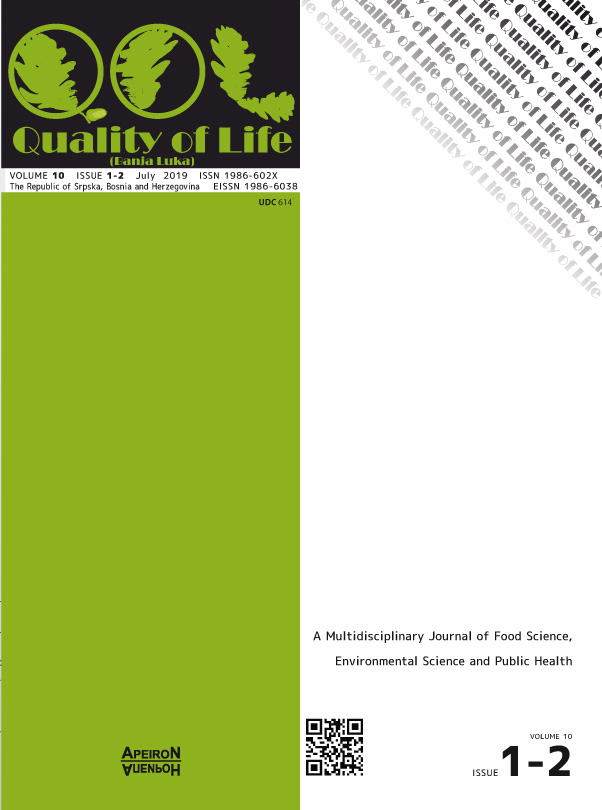Assessment of the Indoor Air Quality of Akure, South – West, Nigeria
DOI:
https://doi.org/10.7251/QOL1901015AAbstract
Air quality has been a major concern throughout the world, Nigeria inclusive. The monitoring of air quality involves indoor and outdoor air quality. In this study, our concern was on indoor air quality. The aim of this study was to assess the air quality of residential homes (17), classrooms (3), hospitals (2), offices (5), Shops (2), and laboratories (5) in Akure, Nigeria in terms of formaldehyde (HCHO), total volatile organic compound (TVOC), Particulate matter (PM1.0; PM2.5, and PM10). A Multifunction Air Detector was used for the assessment using the manufacturers’ procedures and the locations were identified using a Mini GPS. The results revealed as follows: HCHO (0.001-0.030 mg/m3), TVOC (0.003-362 mg/m3), PM1.0 (004-014 µg/m3), PM2.5 (006-020 µg/m3), and PM10 (006-022 µg/m3). The results obtained were below the 24 h pollution recommended standards (0.1 mg/m3- HCHO; TVOC; 10-20 μ/m3 PM) of EPA and WHO. Statistically, there were correlations within the pollutants and weather. The Indoor air quality (IAQ) depicted the areas as ‘good,’ and toxicity potential (TP) were below unity. Although the locations looked safe, it is recommended that constant monitoring of the indoors should be ensured and proper ventilation should be provided.Downloads
Published
2019-07-23
Issue
Section
Чланци
